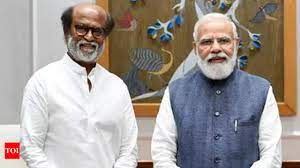In a surprising move that could affect the thriving Malayalam film industry, leading multiplex chain PVR-INOX has halted the screening of Malayalam movies across the country. This decision comes as a result of a dispute between PVR-INOX and the Kerala Film Producers Association (KFPA).
The conflict originated when film producers established an Exclusive Content Mastering Unit. Service providers like QUBE, UFO, and Sony supply virtual prints to theatres such as PVR INOX. Sources indicate that these service providers charge a Virtual Print Fee (VPF) ranging from Rs 12,000 to Rs 25,000 per week for screening. Finding these charges excessive, Kerala producers introduced a more affordable content mastering unit called PDC. They have since been urging theatres to adopt this scheme. However, PVR-INOX has resisted the switch, leading to the ongoing conflict.
Kamal Gianchandani, CEO of PVR-INOX, voiced his concerns in a social media statement, stating, “Our newly inaugurated 9-screen cinema, PVR FORUM Kochi, has been advised by the association to source Malayalam movie content exclusively through one channel, i.e., through the content mastering and distribution network run by the association. Such an action of forcing an exhibitor to procure content from only one source is anti-competitive in nature and prohibited under the law. As a law-abiding member of the Indian Film Industry, we are unable to comply with this advice.”
The ban is expected to have a significant impact on the multiplex chain. A producer, speaking on condition of anonymity, commented, “Rather than affecting just Kerala, the issue has ramifications outside the state as well. In Chennai and Bengaluru, most screens are operated by the multiplex chain. This ban not only affects the producers but also the theatres, particularly during the festive season. They stand to lose a considerable number of centres, approximately 100 theatres in Kerala and South India, in a single day.”
For those unfamiliar with the term, a Virtual Print Fee (VPF) is a subsidy paid by a film distributor to purchase equipment for digital cinema projection, which a film exhibitor uses to present the motion picture. Introduced when commercial-grade digital projectors were launched and theatre owners resisted changing from film projectors, VPF was devised to address the profit imbalance between distributors and theatre owners.
































